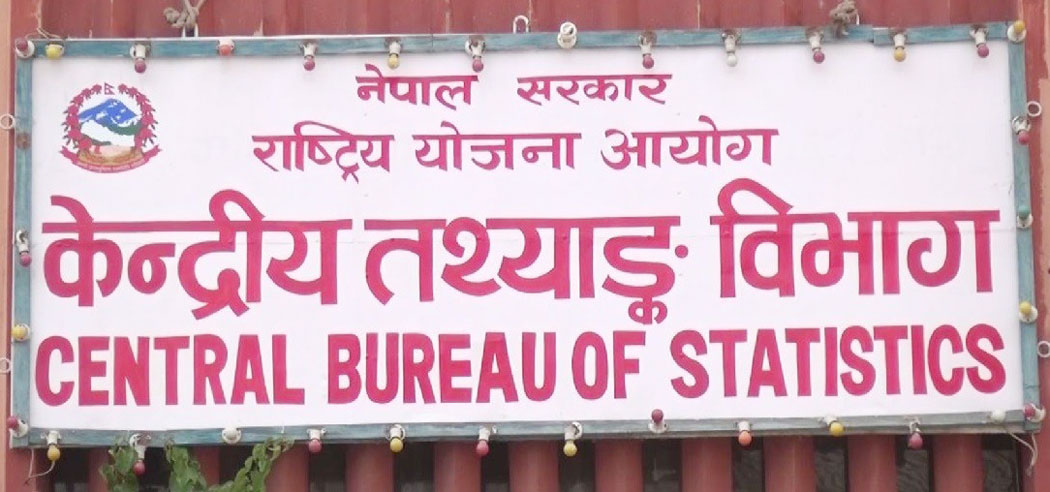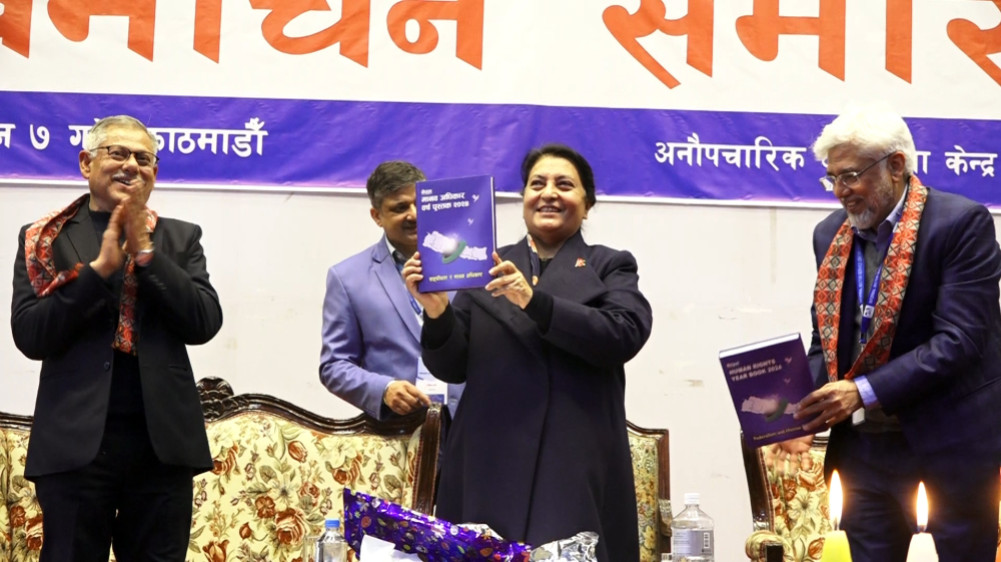The state agency that collects data, which has been under the name of the Central Statistics Department for 64 years according to the Statistics Act 2015, is now going to be transformed into the National Statistics Office. According to the Statistics Bill passed by the Federal Parliament, this office, which was under the National Planning Commission in the past, will now be under the office of the Prime Minister and Council of Ministers.
On11 March 2020, the then Prime Minister KP Sharma Oli registered the Statistics Bill in the National Assembly. This bill was passed by the National Assembly on 4 August 2021 and sent to the House of Representatives. The House of Representatives on 10 August 2022 passed the bill that came with amendments from the National Assembly with a majority.
Initially, it was mentioned in the proposed bill that the National Statistics Office will be an autonomous body. “There will be a national office as a central body for statistical work” was mentioned in subsection 1 of section 18 of the proposed bill.
The Legislation Management Committee of the National Assembly changed it and made the Statistics Office under the Prime Minister’s Office. After the words “as a central body” in sub-section (1), the words “under the office of the Prime Minister and the Council of Ministers” have been added.
It was mentioned in sub-section 2 of section 18 of the proposed bill that “there will be other statistical offices under the authority of the office in the number and location specified by the Government of Nepal”. The Federal Parliament has deleted the other words in sub-section (2).
According to Home Minister Balkrishna Khand, Statistics Department has offices in 33 districts. There is a current obligation to look at 77 districts from the office of 33 districts. According to Khand the issue of expanding offices in all districts will be included in the regulations.
The Department of Statistics has been compiling an integrated system of data collected by government agencies and public institutions. According to the new bill, it is mentioned that the proposed National Statistics Office will maintain coordination between the management of the national statistics system and the agencies affiliated to the system. At the same time, a provision has been added in the bill to manage and maintain uniformity of the statistics of the union, state and local levels by creating standards, criteria and statistical classification of central statistics according to the constitution.
According to the bill, a National Statistics Council will be established under the chairmanship of the Vice Chairman of the National Planning Commission for the purpose of guiding, directing, controlling and regulating the proper development, management and research related activities of the National Statistics System.
The members of the Council include the Governor of Nepal Rastra Bank, the Prime Minister’s Office, the Ministry of Finance, the Secretary of the Ministry of Industry, Agriculture, Home, Education, Labor, Federal Affairs, the Ministry of Health, and the secretary of each provincial government’s planning ministry. The Council will have the authority to formulate short-term, medium-term and long-term plans and policies related to statistics, and to coordinate the management of statistics at the federal, provincial and local levels.
A provision has also been added that the state government or local level can produce, process, store, publish and distribute the information or data they need. However, the information related to the statistics collected by the state and local levels must be provided to the relevant ministries of the Government of Nepal (Office of the Prime Minister and Council of Ministers). The Statistics Office under the Office of the Prime Minister and the Council of Ministers will take the details of the statistics collected by the provinces and local levels and make a comprehensive report.
After the bill passed by the Federal Parliament and approved by the President and implemented, data collection and publication will be more strict. Organizations formed for statistical purposes must be registered. It has been made mandatory to obtain prior permission for data collection and to verify it before publication. Asking for permission for data collection is not guaranteed. If they are not willing to give the permission, the permission authority has the right to stop it.Data should be published only after getting it certified by the National Statistics Office. Otherwise, punishment will be imposed.
However, according to subsection 8 of section 7 of the passed bill, no permission will be given to collect data on issues that adversely affect the country’s governance system or peace and security, the country’s national interest, social or cultural harmony or diplomatic relations.


 NP
NP

